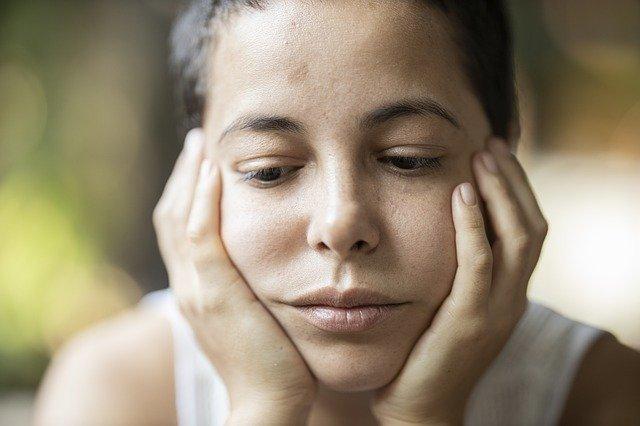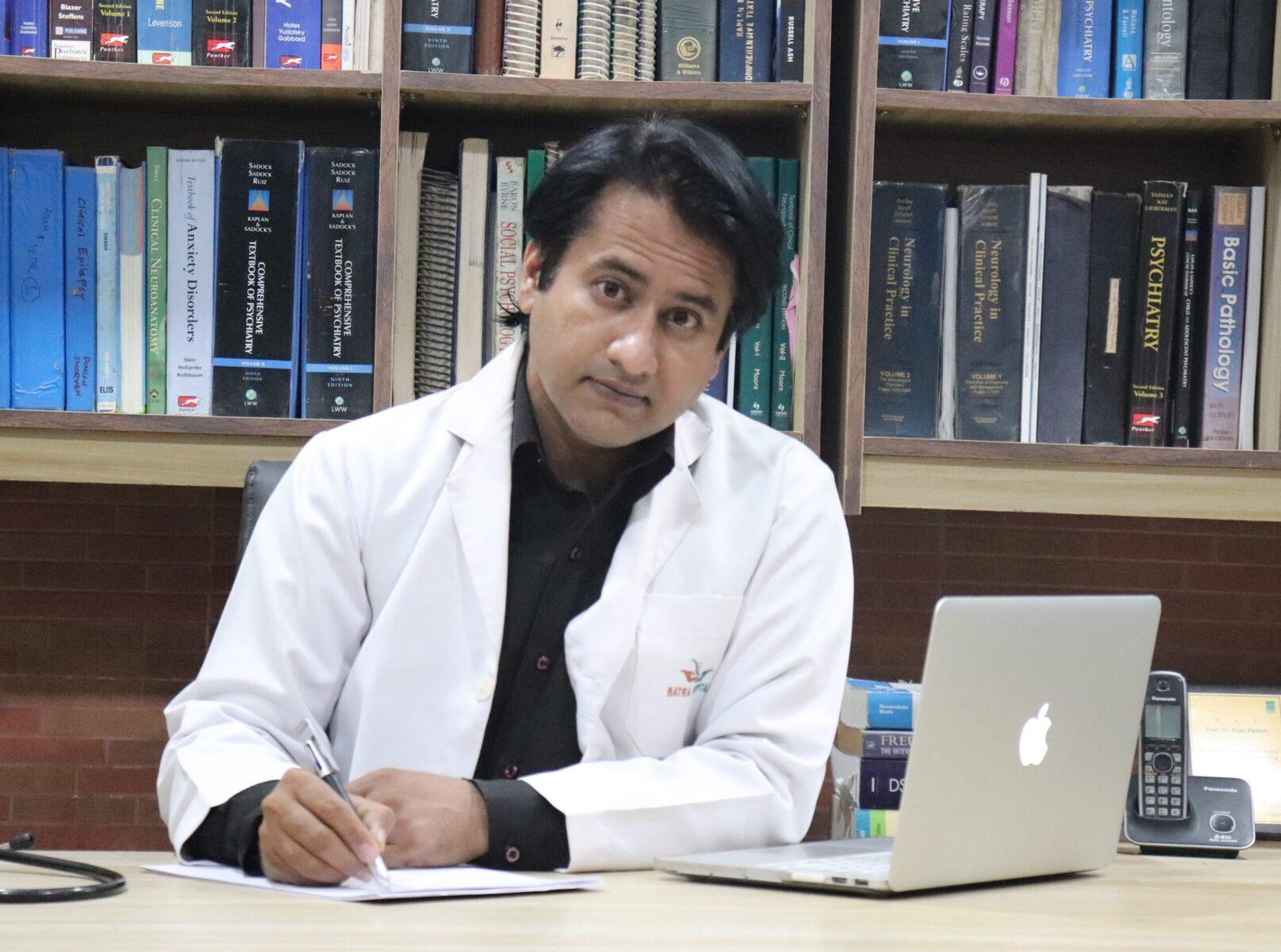Depression

Key facts
- Depression is a common mental disorder. Globally, more than 264 million people of all ages suffer from depression.
- Depression is a leading cause of disability worldwide and is a major contributor to the overall global burden of disease.
- More women are affected by depression than men.
- Depression can lead to suicide.
- There are effective psychological and pharmacological treatments for moderate and severe depression.
Overview
Depression is a common illness worldwide, with more than 264 million people affected(1). Depression is different from usual mood fluctuations and short-lived emotional responses to challenges in everyday life. Especially when long-lasting and with moderate or severe intensity, depression may become a serious health condition. It can cause the affected person to suffer greatly and function poorly at work, at school and in the family. At its worst, depression can lead to suicide. Close to 800 000 people die due to suicide every year. Suicide is the second leading cause of death in 15-29-year-olds.
Although there are known, effective treatments for mental disorders, between 76% and 85% of people in low- and middle-income countries receive no treatment for their disorder(2). Barriers to effective care include a lack of resources, lack of trained health-care providers and social stigma associated with mental disorders. Another barrier to effective care is inaccurate assessment. In countries of all income levels, people who are depressed are often not correctly diagnosed, and others who do not have the disorder are too often misdiagnosed and prescribed antidepressants.
The burden of depression and other mental health conditions is on the rise globally. A World Health Assembly resolution passed in May 2013 has called for a comprehensive, coordinated response to mental disorders at the country level.
Types and symptoms
Depending on the number and severity of symptoms, a depressive episode can be categorized as mild, moderate or severe.
A key distinction is also made between depression in people who have or do not have a history of manic episodes. Both types of depression can be chronic (i.e. over an extended period) with relapses, especially if they go untreated.
Recurrent depressive disorder: this disorder involves repeated depressive episodes. During these episodes, the person experiences depressed mood, loss of interest and enjoyment, and reduced energy leading to diminished activity for at least two weeks. Many people with depression also suffer from anxiety symptoms, disturbed sleep and appetite, and may have feelings of guilt or low self-worth, poor concentration and even symptoms that cannot be explained by a medical diagnosis.
Depending on the number and severity of symptoms, a depressive episode can be categorized as mild, moderate or severe. An individual with a mild depressive episode will have some difficulty in continuing with ordinary work and social activities but will probably not cease to function completely. During a severe depressive episode, it is unlikely that the sufferer will be able to continue with social, work or domestic activities, except to a limited extent.
Bipolar affective disorder: this type of depression typically consists of both manic and depressive episodes separated by periods of normal mood. Manic episodes involve elevated or irritable mood, over-activity, pressure of speech, inflated self-esteem and a decreased need for sleep.
Contributing factors and prevention
Depression results from a complex interaction of social, psychological and biological factors. People who have gone through adverse life events (unemployment, bereavement, psychological trauma) are more likely to develop depression. Depression can, in turn, lead to more stress and dysfunction and worsen the affected person’s life situation and depression itself.
There are interrelationships between depression and physical health. For example, cardiovascular disease can lead to depression and vice versa.
Prevention programmes have been shown to reduce depression. Effective community approaches to prevent depression include school-based programmes to enhance a pattern of positive thinking in children and adolescents. Interventions for parents of children with behavioural problems may reduce parental depressive symptoms and improve outcomes for their children. Exercise programmes for the elderly can also be effective in depression prevention.
Diagnosis and treatment
There are effective treatments for moderate and severe depression. Health-care providers may offer psychological treatments such as behavioural activation, cognitive behavioural therapy (CBT) and interpersonal psychotherapy (IPT), or antidepressant medication such as selective serotonin reuptake inhibitors (SSRIs) and tricyclic antidepressants (TCAs). Health-care providers should keep in mind the possible adverse effects associated with antidepressant medication, the ability to deliver either intervention (in terms of expertise, and/or treatment availability), and individual preferences. Different psychological treatment formats for consideration include individual and/or group face-to-face psychological treatments delivered by professionals and supervised lay therapists.
Psychosocial treatments are also effective for mild depression. Antidepressants can be an effective form of treatment for moderate-severe depression but are not the first line of treatment for cases of mild depression. They should not be used for treating depression in children and are not the first line of treatment in adolescents, among whom they should be used with extra caution.
WHO response
Depression is one of the priority conditions covered by WHO’s mental health Gap Action Programme (mhGAP). The Programme aims to help countries increase services for people with mental, neurological and substance use disorders through care provided by health workers who are not specialists in mental health. WHO has developed brief psychological intervention manuals for depression that may be delivered by lay workers. An example is Problem Management Plus, which describes the use of behavioural activation, relaxation training, problem solving treatment and strengthening social support. Moreover, the manual Group Interpersonal Therapy (IPT) for Depression describes group treatment of depression. Finally, Thinking Healthy covers the use of cognitive-behavioural therapy for perinatal depression.

I Can Help
Dr Vijay PathakMBBS MD Psychiatry (CIP RANCHI)Positive Psychology & Psychiatry Practitioner Since 2005Dr. Vijay Pathak is a well-known Consultant and practicing psychiatrist in delhi. After completion of MBBS from Sardar Patel Medical College, Bikaner (University of Rajasthan), he worked in different specialties as Neurology, Neurosurgery, Plastic Surgery, Urology as resident Doctor. The grossly unnoticed psychological trauma among patients tilted his interest in Mental Health and he obtained an MD in Psychiatry from the legendry Central Institute of Psychiatry ,Ranchi.. He then worked in the Department of Psychiatry of RML Hospital New Delhi as Senior Resident for three years and as Research Officer for a further one year. During this period he also gained experience in the Drug Dependence TreatmentHis areas of specialization include adult psychiatry (bipolar disorders, schizophrenia and anxiety disorders), child and adolescent psychiatry (especially ADHD), de-addiction (alcohol and substance abuse) and community psychiatry. One of the Top Psychiatrist in Delhi Dr. Pathak is known to be not only effective but also compassionate with his patients, as a result of which they trust him and connect well with him.Dr. Vijay Pathak, also termed as one of the Best Psychiatrist in Delhi by many of his patients in reviews , has extensive training and experience in his profession and is well-versed in the segments of psychopathology, psychopharmacology, neuroscience, clinical genetics, psychological therapies, research methodology, and statistics.
Dr Vijay Pathak Consultant Psychiatrist in Delhi can be found on google by following tags Psychiatrist In Delhi, Best Psychiatrist in delhi, Top Psychiatrist in Delhi, Delhi Psychiatrist, Psychiatrist in Rajouri Garden,Best Psychiatrist in Rajouri Garden, Psychiatrist in Hari Nagar, Psychiatrist in Tagore Garden, Psychiatrist in Raja Garden, Psychiatrist in Central Delhi, Psychiatrist in Ramesh Nagar, Psychiatrist in Moti Nagar, Psychiatrist in Shadipur, Psychiatrist Near Me, Psychiatrist in Karol Bag, Psychiatrist in Rajendra Nagar, Psychiatrist in Punjabi Bag, Psychiatrist in Paschim Vihar, Psychiatrist in Vikaspuri, Best Psychiatrist in uttam nagar, Best Psychiatrist in subhash nagar, Best Psychiatrist indwarka, Best Psychiatrist in nazafgarh, Best Psychiatrist in bali nagar, Best Psychiatrist in patel nagar, Best Psychiatrist in rani bagh, Best Psychiatrist in west delhi, Best Psychiatrist in tilak nagar, Best Psychiatrist innavada, Best Psychiatrist in delhi cantt, Best Psychiatrist in pitampura, Best Psychiatrist in rohini, Best Psychiatrist in ashok vihar